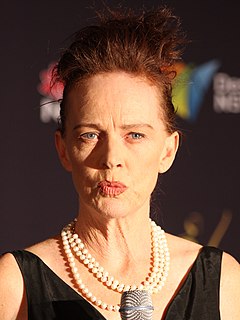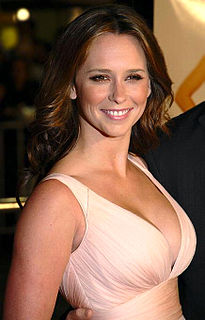Contents
- This is a list of Australian films from 2000 to present. For a complete alphabetical list, see Category:Australian films .

The cinema of Australia had its beginnings with the 1906 production of The Story of the Kelly Gang, the earliest feature film ever made. Since then, Australian crews have produced many films, a number of which have received international recognition. Many actors and filmmakers started their careers in Australian films, many of whom have acquired international reputations, and a number of whom have found greater financial benefits in careers in larger film-producing centres, such as in the United States.

Eric Banadinović,, known professionally as Eric Bana, is an Australian actor and comedian. He began his career in the sketch comedy series Full Frontal before gaining notice in the comedy drama The Castle (1997). He achieved further critical recognition for starring in the biographical crime film Chopper (2000).
Halifax f.p. is an Australian television crime series produced by Nine Network from 1994 to 2002. The series stars Rebecca Gibney as Doctor Jane Halifax, a forensic psychiatrist investigating cases involving the mental state of suspects or victims. The series is set in Melbourne.
This is an index of lists of films by year, awards, countries of origin and genre among other factors.
The AACTA Award for Best Film is an award presented by the Australian Academy of Cinema and Television Arts (AACTA), a non-profit organisation whose aim is to "identify, award, promote, and celebrate Australia's greatest achievements in film and television". The award is presented at the annual AACTA Awards, which hand out accolades for achievements in feature film, television, documentaries and short films. From 1969 to 2010, the category was presented by the Australian Film Institute (AFI), the Academy's parent organisation, at the annual Australian Film Institute Awards. When the AFI launched the Academy in 2011, it changed the annual ceremony to the AACTA Awards, with the current award being a continuum of the AFI Award for Best Film.

The AACTA Award for Best Actress in a Leading Role is an award presented by the Australian Academy of Cinema and Television Arts (AACTA), a non-profit organisation whose aim is to "identify, award, promote, and celebrate Australia's greatest achievements in film and television".

The National Film and Sound Archive of Australia (NFSA), known as ScreenSound Australia from 1999 to 2004, is Australia's audiovisual archive, responsible for developing, preserving, maintaining, promoting and providing access to a national collection of film, television, sound, radio, video games, new media, and related documents and artefacts. The collection ranges from works created in the late nineteenth century when the recorded sound and film industries were in their infancy, to those made in the present day.
The Film Critics Circle of Australia (FCCA) is an association of cinema critics and reviewers. It includes journalists in "media, television, major national and state papers, radio, national and state, online and freelance writers, Australian representatives from international magazines..and local specialist film magazines", and is based in Sydney.

Jennifer Love Hewitt is an American actress, producer and singer. Hewitt began her career as a child actress and singer, appearing in national television commercials before joining the cast of the Disney Channel series Kids Incorporated (1989–1991). She had her breakthrough as Sarah Reeves Merrin on the Fox teen drama Party of Five (1995–1999) and rose to fame as a teen star for her role as Julie James in the horror films I Know What You Did Last Summer (1997) and its 1998 sequel, as well as her role as Amanda Beckett in the teen comedy film Can't Hardly Wait (1998).
Buried Country is a documentary film, book, soundtrack album, and stage show. A prosopography, created by Clinton Walker, it tells the story of Australian country music in the Aboriginal community by focussing on the genre's most important stars.
The AACTA Award for Outstanding Achievement in Short Film Screen Craft is a special award, presented by the Australian Academy of Cinema and Television Arts (AACTA). The award was presented by the Australian Film Institute (AFI), from 2006 to 2010, at the Australian Film Institute Awards.
The AACTA Award for Best Visual Effects or Animation is an award presented by the Australian Academy of Cinema and Television Arts (AACTA) for achievements in visual effects in film, television, documentary and short film. The award was first presented by the Australian Film Institute (AFI) at the Australian Film Institute Awards from 2006 to 2010, prior to the establishment of the Academy. In 2014 the award for Best Visual Effects was renamed Best Visual Effects or Animation. Additionally, this category is now open to any film, television or documentary production, regardless of geography, which has had 100% of its visual effects and animation made in Australia.
The AACTA Award for Outstanding Achievement in Television Screen Craft is a special discretionary award, presented by the Australian Academy of Cinema and Television Arts (AACTA) for achievements in television screen crafts, in fields excluding acting, direction, producing and screenwriting. The award was presented by the Australian Film Institute (AFI), from 2006 to 2010, at the Australian Film Institute Awards.
The AFI Members' Choice Award, is a film award presented by the Australian Academy of Cinema and Television Arts (AACTA) to an Australian feature-length film that is voted for by members of the Australian Film Institute (AFI). Prior to the establishment of the Academy in 2011, the award was presented by the Australian Film Institute (AFI) at the annual Australian Film Institute Awards from 2009–2010. The award is presented at the AACTA Awards Luncheon, a black tie event which celebrates achievements in film production, television, documentaries and short films.
The AACTA Award for Best Original Screenplay is an award presented by the Australian Academy of Cinema and Television Arts (AACTA), for an Australian screenplay "written directly and originally for the screen". Prior to the establishment of the Academy in 2011, the award was presented by the Australian Film Institute (AFI) at the annual Australian Film Institute Awards. It was first handed out in 1978 when the award for Best Screenplay was split into two categories: Best Original Screenplay and Best Adapted Screenplay. The award has since been presented intermittently from 1978-1979, 1983-1987, 1989, 1993-2006, and then from 2008-present.
The Australian Film Institute International Award for Excellence in Filmmaking was a special award presented by the Australian Film Institute (AFI) "in recognition of any area of achievement by an Australian in films produced internationally, recognising the contribution of Australian film and television industry practitioners worldwide." It was handed out at the Australian Film Institute Awards, which are now the AACTA Awards after the establishment of the Australian Academy of Cinema and Television Arts (AACTA), by the AFI. The award was presented in 2001 as a special achievement award before it was made into a competitive award in 2006, but from 2007-2009 it was only handed out as a career based award "acknowledging the continued contribution of an Australian practitioner to international productions", and not for a particular film.
The Australian Film Institute Award for Best Foreign Film was an award presented by the Australian Film Institute (AFI), for a film made outside of Australia in English or non-English language. It was handed out at the Australian Film Institute Awards, which are now the AACTA Awards after the establishment of the Australian Academy of Cinema and Television Arts (AACTA), by the AFI. The Award was handed out from 1992–2004.
The AACTA Award for Best Adapted Screenplay is an award presented by the Australian Academy of Cinema and Television Arts (AACTA), for an Australian screenplay "based on material previously released or published". Prior to the establishment of the Academy in 2011, the award was presented by the Australian Film Institute (AFI) at the annual Australian Film Institute Awards. It was first handed out in 1978 when the award for Best Screenplay was split into two categories: Best Original Screenplay and Best Adapted Screenplay. The award has since been presented intermittently from 1978–1979, 1983–1987, 1989, 1993–2003, 2005–2006, and then from 2008–present.